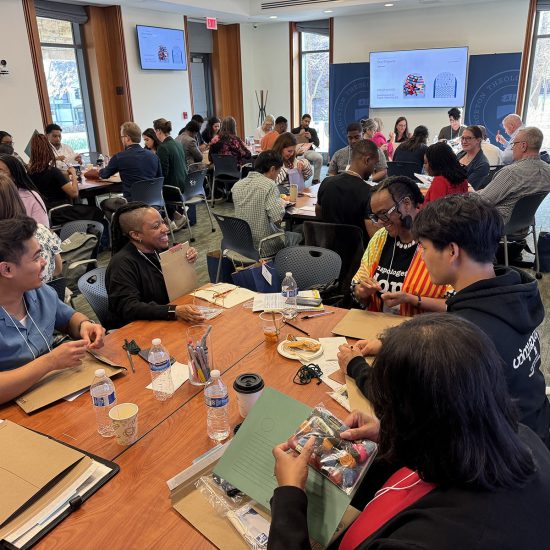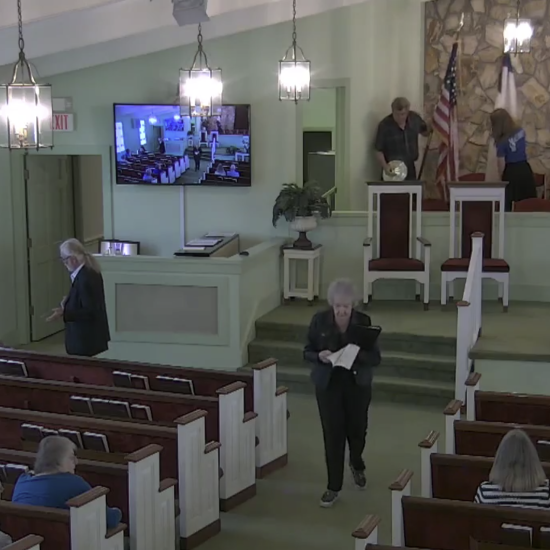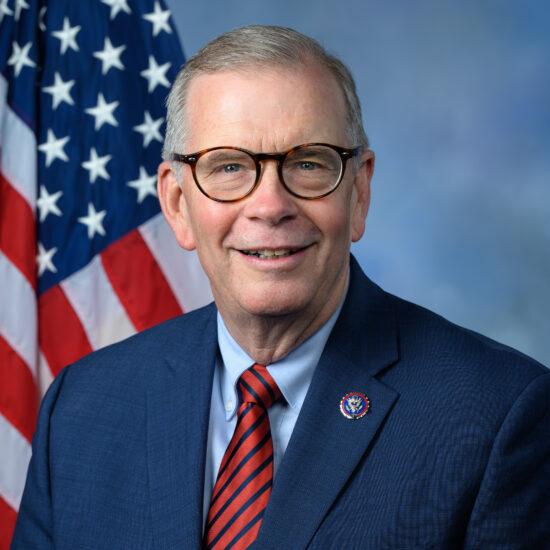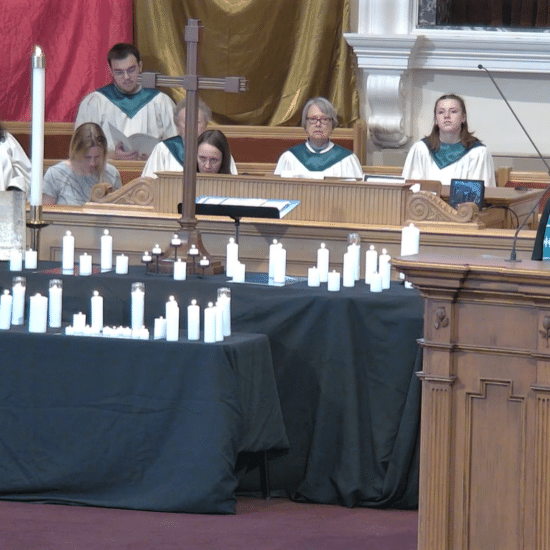SHAWNEE, Kan. (ABP) –- Many 9/11 speakers discussed whether America is any safer now than it was 10 years ago, but a Baptist seminary in Kansas pondered a decade later whether Americans are better people.

Miroslav Volf asks "what should our conversation be?" 10 years after 9/11 in address at Central Baptist Theological Seminary.
|
Addressing a packed house at Baugh-Marshall Chapel at Central Baptist Theological Seminary on the eve of the 10th anniversary of 9/11, theologian Miroslav Volf addressed the question: “What has 9/11 done to our soul as a nation?”
Volf, a Yale professor and author of books including Allah: A Christian Response, acknowledged in a recent Huffington Post article that the United States is not a “Christian nation.” Yet many of its citizens are Christians and many standards of the Christian faith are largely shared by people of other faiths or no faiths at all. As a Christian theologian applying Christian moral standards, Volf concluded that some Americans have in some regard become better people, while others in other regards have not.
On the debit side, Volf cited:
— Prejudice. Between 2002 and 2010 the percentage of Americans holding unfavorable views of Islam and Muslims rose from 39 percent to 49 percent. He attributed the rise not to more knowledge but increased prejudice, which he described as a form of “untruthfulness” and “injustice” formulated in the imagination.
— Multiplication of enemies. After 9/11 the U.S. set out to punish the perpetrators and their supporters in order to ensure the nation’s safety. A decade later, however, America has more enemies than ever and her stature in the world is decreased.
— Exceptionalism. In an increasingly connected world, the U.S. has insisted in going its own way and does not hold itself to the same moral standards it expects of everyone else. As a result, Americans are less-liked abroad than ever and in some places regarded as bullying hypocrites.
— Torture. Polls show more than half who attend U.S. church services accept torture as a method of truth-finding. Among white evangelicals the number rose to 60 percent. Volf, a native of Croatia who was never tortured but was held for months and interrogated as a perceived enemy, says he cannot understand how anyone who worships “the tortured God” could support torture.
— America as religion. Volf observed that since 9/11 “many people among those who insist that America is a Christian nation seem to worship America more than they follow the crucified Messiah.” Volf said people on both sides of the conflict in his own native country did the same thing, but it is a form of idolatry. He quoted theologian Karl Barth’s saying that “God does not serve,” and added, “We shouldn’t have to be told this.”
All that notwithstanding, Volf said there have been positive outcomes in the decade since 9/11.
Many Christian leaders -– like Purpose Driven Life author and Baptist pastor Rick Warren, for example -– have decided it is part of their calling to promote civility and understanding among all religions, including Muslims.
Even among the most conservative Christians, there is a growing recognition that far from being a Christian nation, America is “irreversibly a pluralistic nation” in which people of many faiths and no faiths live side by side. That has strengthened awareness that Americans need to relate to one another in civility.
Finally, even while Christianity and Islam remain two very different religions, adherents of both are discovering common ground in shared values like the love of God and others and the moral code enshrined in the Ten Commandments. That has created space for dialogue and cooperation for the common good.
Volf, who was in New York on Sept. 11, 2001, giving a talk at the United Nations on -– ironically -– reconciliation, shared the experience of that day for the first time publicly. Minutes after his address that day, the U.N. building was evacuated out of fear it might also be a target. Hours later New York City had become a ghost town. “Stunned shock turned to fear, then to determination not to allow anything of that sort to happen again,” he said.
Ten years later, Volf said given the sheer numbers of 2.3 billion Christians and 1.7 billion Muslims in the world that he believes no military solution is possible. “The challenge we face is how to respond out of authentic convictions of our faith rather than letting the evil perpetrated against us shape our response,” he said.
Central Seminary sponsored the 9/11 anniversary observance along with Country Club Christian Church and the Kansas City Interfaith Clergy Council. On Sunday, Sept. 11, Volf spoke at Country Club Christian Church’s “Pathways to Learning” elective series.
-30-
Robin Sandbothe is director of seminary relations at Central Baptist Theological Seminary. Bob Allen of Associated Baptist Press contributed to this story.






